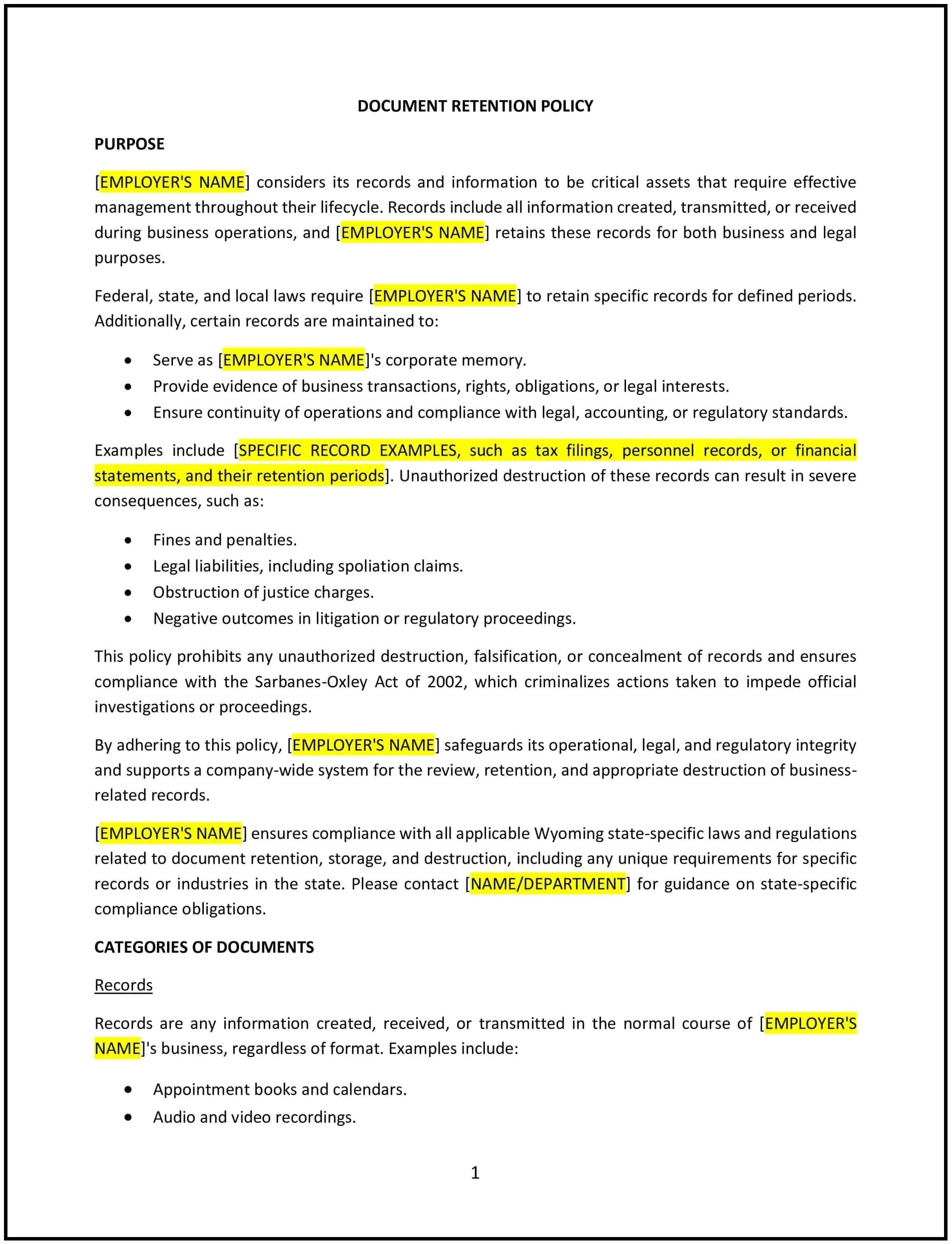Got contracts to review? While you're here for policies, let Cobrief make contract review effortless—start your free review now.

Customize this template for free
Document retention policy (Wyoming)
In Wyoming, a document retention policy helps businesses establish clear guidelines for managing and storing records while promoting compliance with state and federal regulations. This policy is particularly critical for industries like energy, agriculture, and healthcare, where accurate and secure documentation is essential for operational and legal purposes.
This policy outlines the types of documents that must be retained, retention periods, and procedures for secure storage and disposal, ensuring a consistent and compliant approach to record-keeping.
How to use this document retention policy (Wyoming)
- Identify applicable documents: Specify the types of records covered by the policy, such as financial statements, contracts, personnel files, tax records, and regulatory filings.
- Define retention periods: Outline how long each type of document must be retained, based on legal requirements and business needs. Include Wyoming-specific retention rules where applicable.
- Establish storage procedures: Provide guidelines for securely storing physical and digital records, ensuring they are protected from unauthorized access or damage.
- Create disposal protocols: Detail how records should be disposed of once their retention period expires, such as secure shredding for physical documents or permanent deletion for digital files.
- Support compliance: Align the policy with Wyoming state laws and federal regulations, improving compliance and reducing risks.
Benefits of using a document retention policy (Wyoming)
A structured document retention policy provides several benefits for Wyoming businesses:
- Supports compliance: Aligns with state and federal regulations, minimizing the risk of legal penalties or audits.
- Improves efficiency: Simplifies record-keeping by providing clear guidelines for storing, managing, and disposing of documents.
- Protects sensitive information: Ensures secure handling and disposal of confidential records, reducing the risk of data breaches.
- Reduces storage costs: Prevents unnecessary storage of outdated records, saving space and resources.
- Adapts to local needs: Addresses unique documentation requirements for Wyoming industries, such as environmental or agricultural records.
Tips for using a document retention policy (Wyoming)
- Customize for your industry: Tailor retention periods and storage requirements to reflect the specific needs of your business and Wyoming’s industries.
- Educate employees: Provide training on the importance of record retention and the procedures outlined in the policy.
- Monitor compliance: Regularly audit record-keeping practices to ensure adherence to the policy.
- Update regularly: Review the policy periodically to reflect changes in laws, industry standards, or organizational needs.
- Leverage technology: Use document management systems to streamline storage, retrieval, and disposal processes.